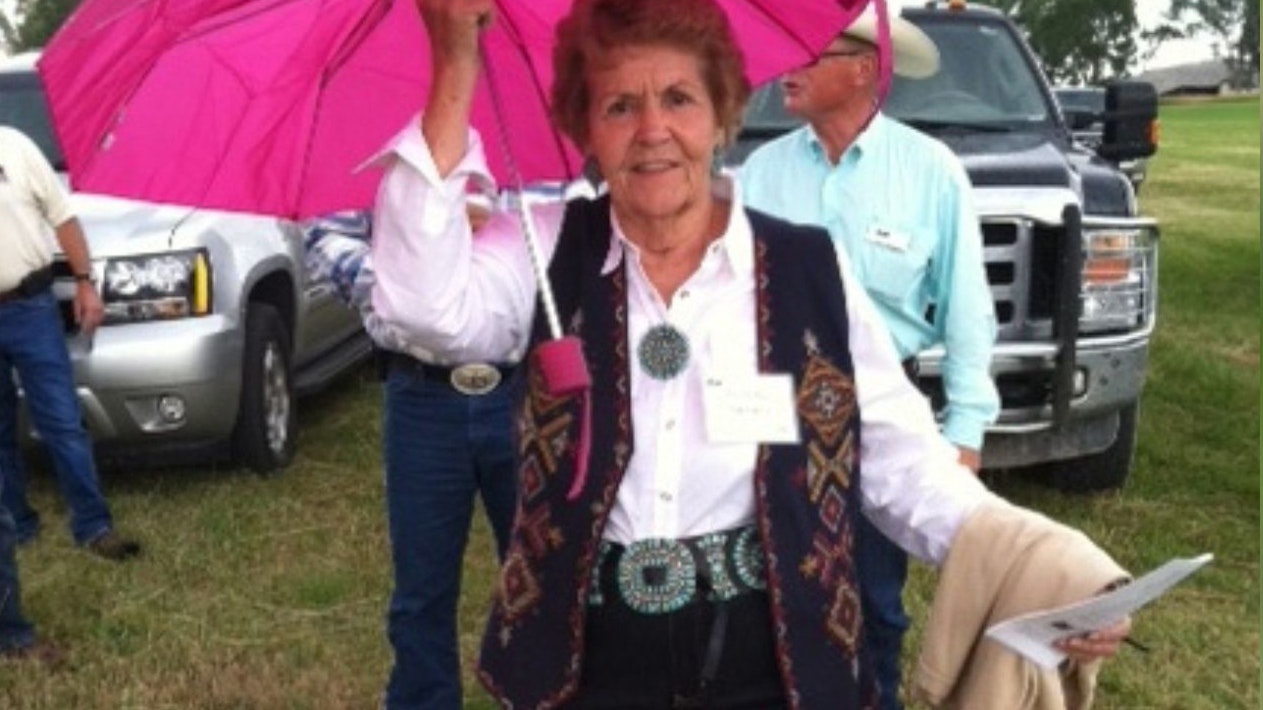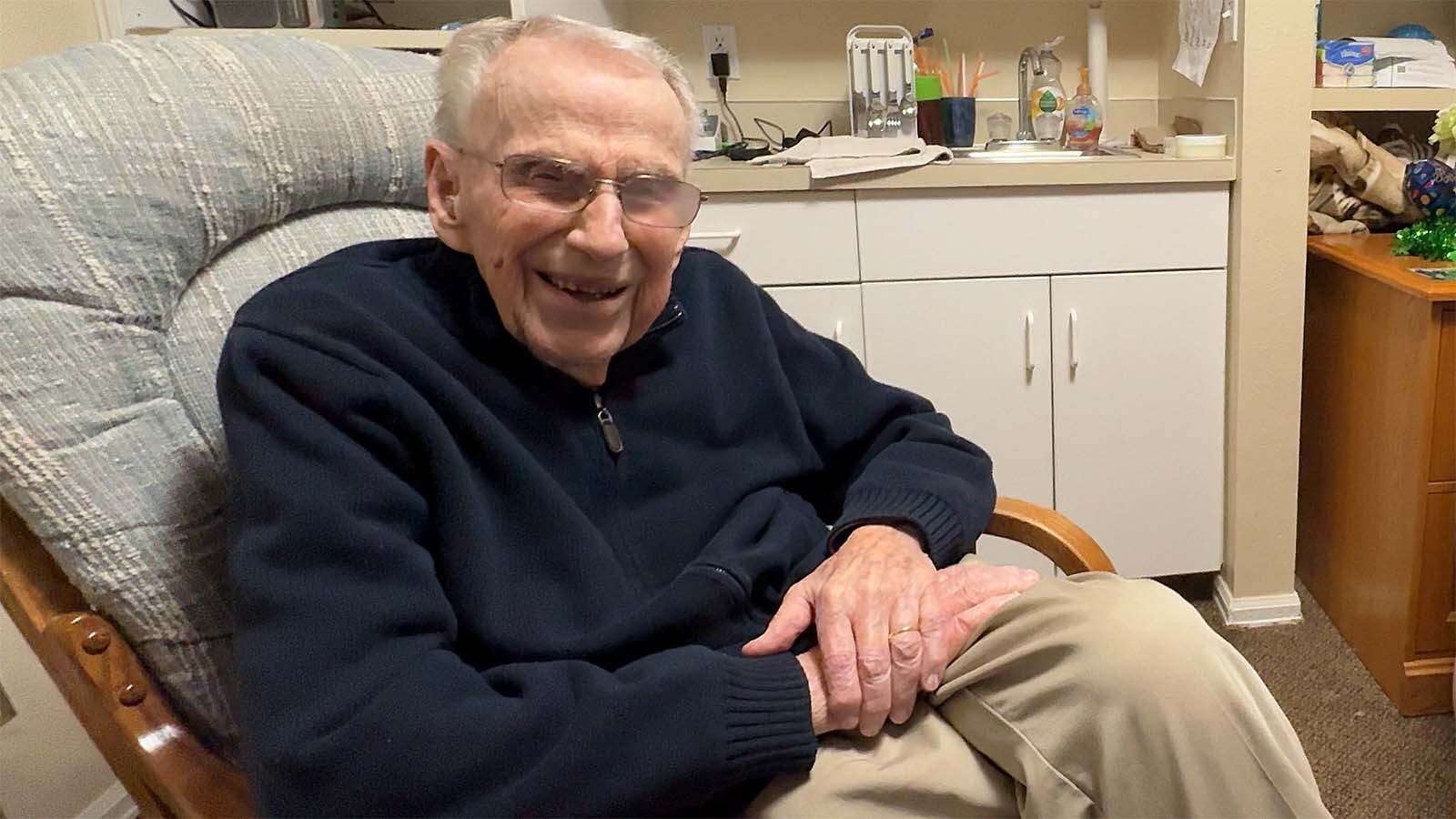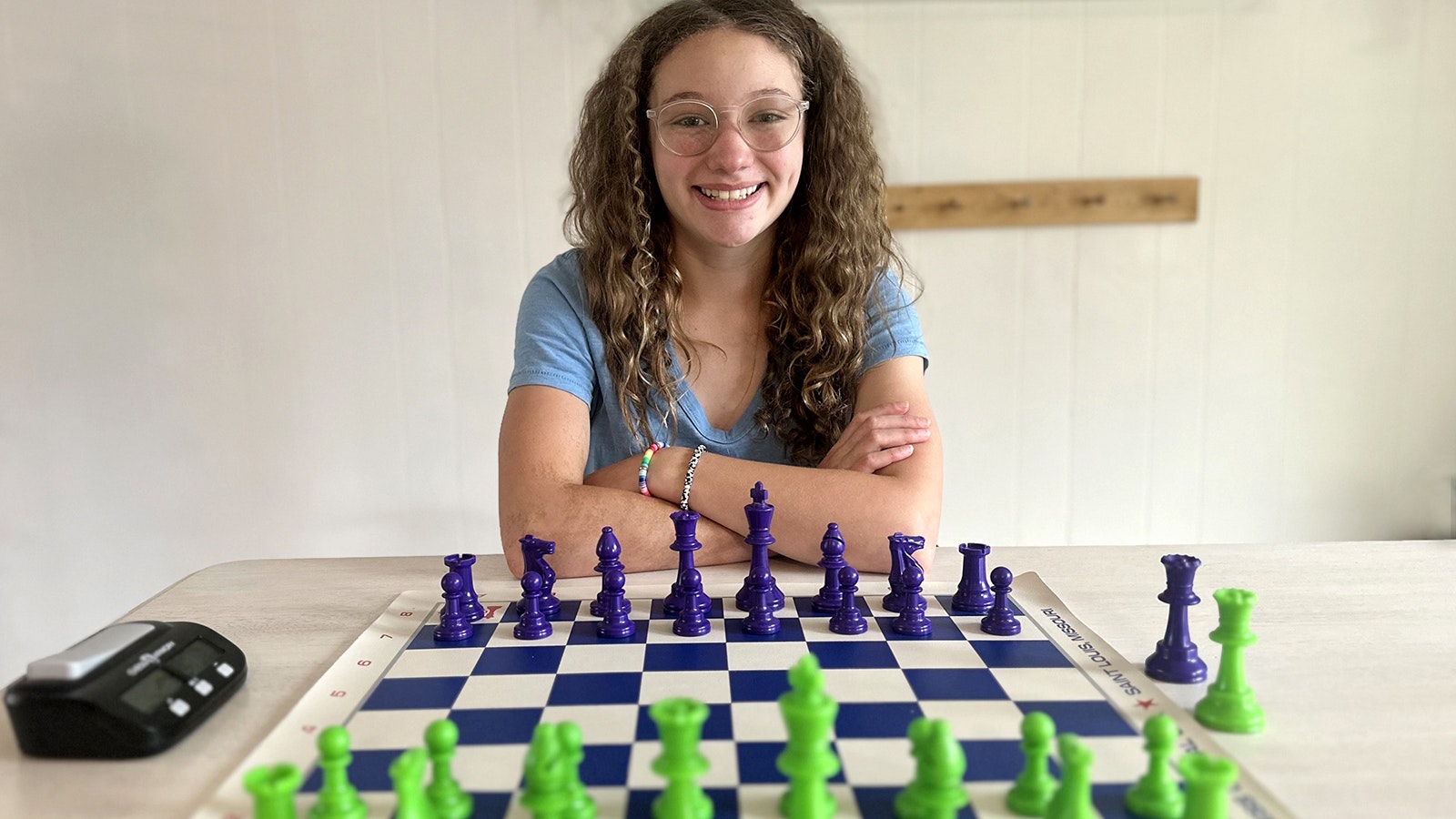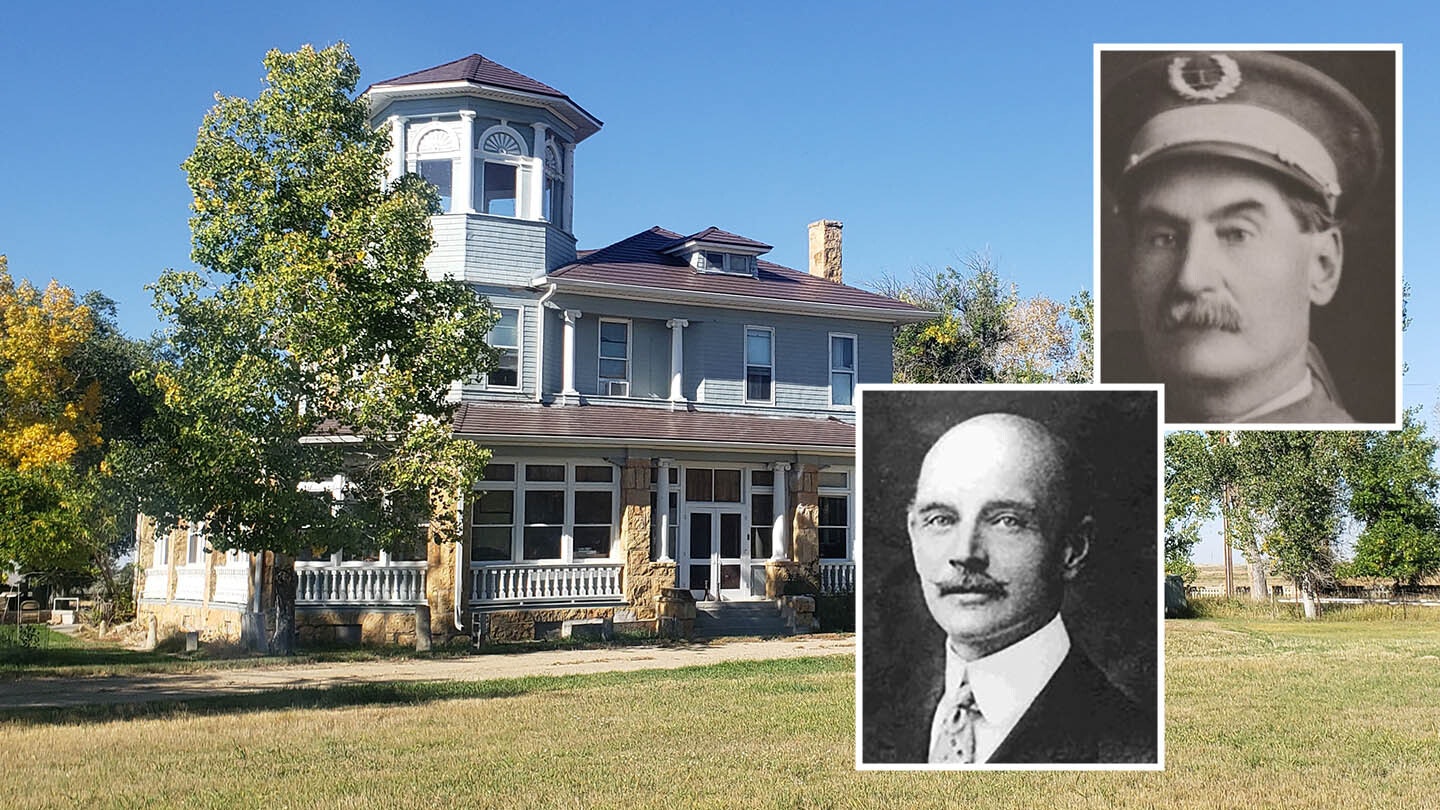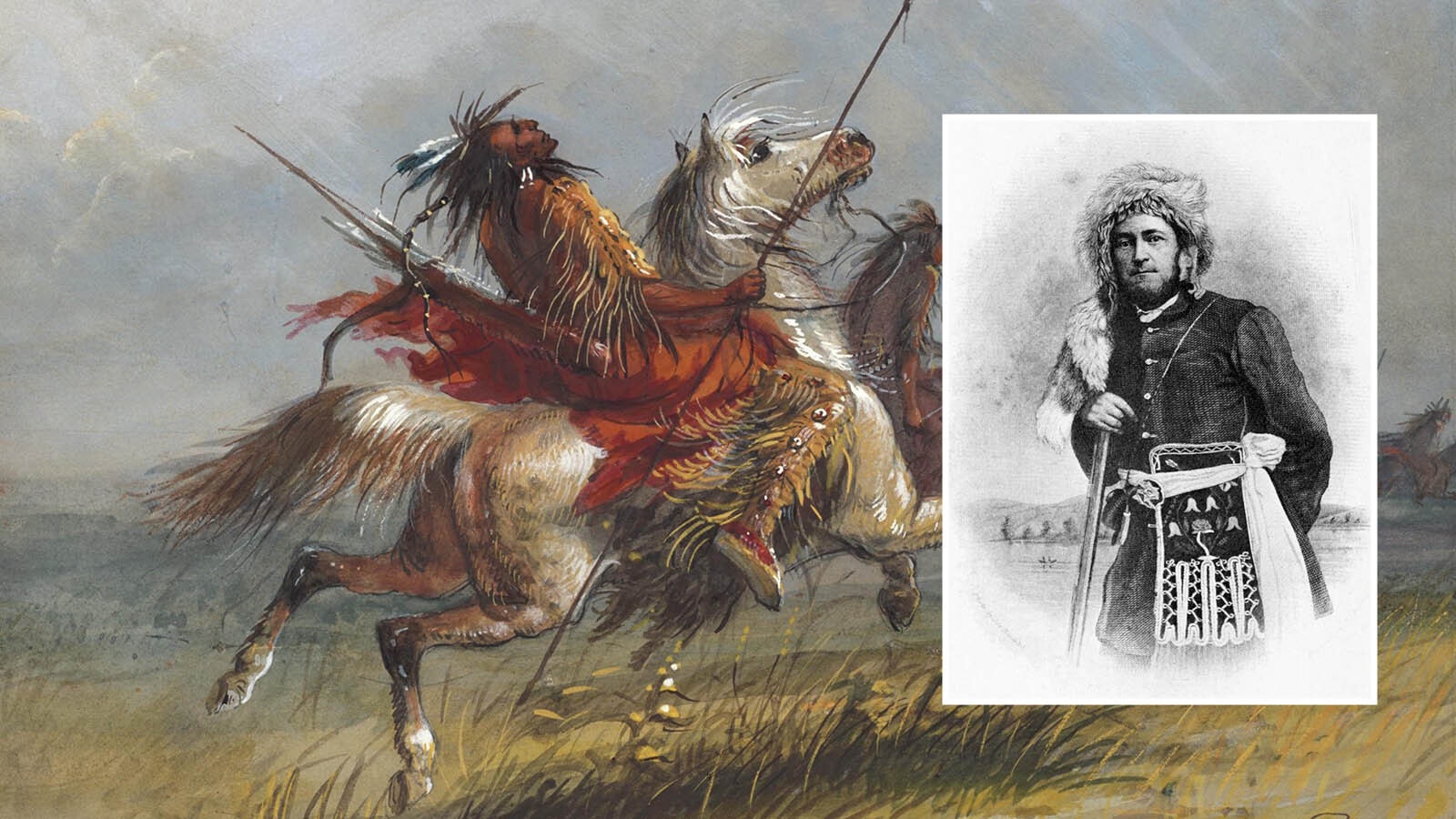When Lois Brown visited her sister Mary in Shoshoni in the mid-1950s, the Ohio-born young woman had no inkling that her future lay in the wide-open spaces of central Wyoming.
After meeting and marrying a Wyoming rancher, Bill Herbst, in 1958, Lois’ life soon revolved around raising their three children and working the family’s large and cattle operation and land.
But it wasn’t until her husband died in 1990 that Herbst became a community leader and an advocate for ranching operations around the state.
In 2005, she was elected president of the Wyoming Stock Growers Association – the only woman to ever hold the position.
“It was really her determination to contribute that got her into that position,” said Jim Magagna, current president of the association who has known Herbst for decades.
Now 89 years old, Herbst still has her eye on current events, and is still passing on the wisdom she earned in more than 60 years of ranch life.
Military Service
Ranching was not on Lois Brown’s list of potential careers when she was a young girl growing up in the rolling hills of southern Ohio.
An honors student and salutatorian of her graduating class, the teenager hoped to attend college.
Her mother had other plans.
“My mother thought I should join the Air Force,” Lois told Cowboy State Daily, explaining that the family had little money and that even with scholarships, could not afford to send her to college.
And with three older brothers already in the military, it seemed the natural choice.
“She was used to putting the kids in the military,” she said.
Lois spent the next three years of her life as an Air Force secretary assigned to Hill Air Force Base near Ogden, Utah, then later at Patterson AFB near Dayton, Ohio.
“They wanted me to be a control tower operator,” she said. “I had the intelligence for it, the aptitude and so forth, but I preferred being a secretary.”
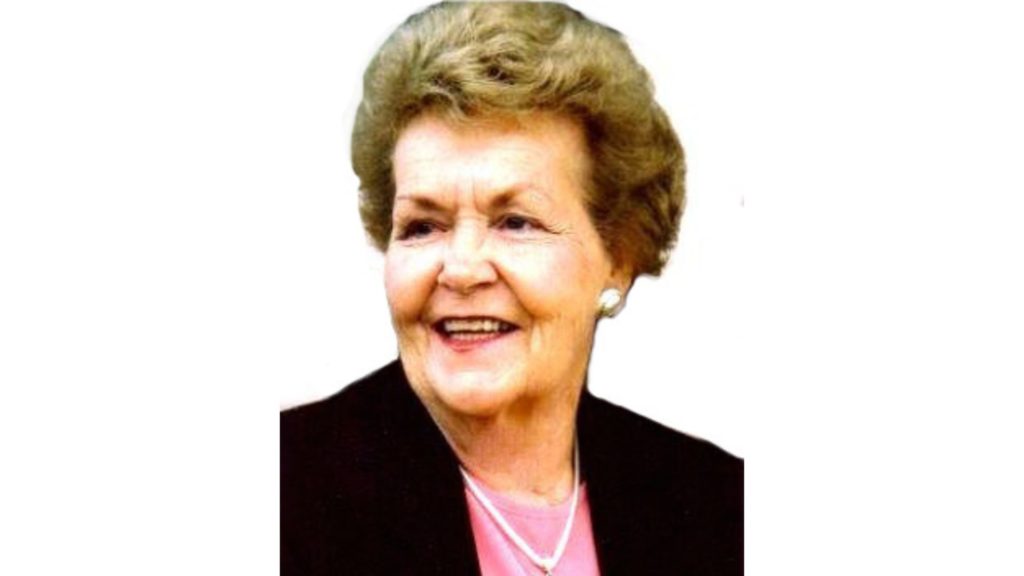
Ranching
Lois met Bill Herbst at a dance in Shoshoni when she was visiting from Denver.
“We were at this dance, and there was a Shoshoni man chasing me around whose wife was sitting there,” she recalled, adding her future husband came over and rescued her.
“Bill had come over to speak to me or something, and I told him how embarrassing it was,” she said. “And he said, ‘Don’t worry, I’ll stay with you.’ He danced with me and sat at my table and asked me to go up the river and open ice holes with him the next morning.”
Bill Herbst’s ranch, the Lazy TY, was passed down to him by his father Frank, who had emigrated from Austria and granted a homestead on a portion of the Wind River Indian Reservation that had been released for purchase in 1906.
When Frank died in 1948, Bill took over management of the ranch, and in 1958 brought his new bride there, where they raised their three children.
Twins Karen and Linda were born in 1959, and son Frank was added to the family in 1962.
A Ranch Wife
Lois assumed the duties of a ranch wife, becoming familiar with the cattle operation and taking over record-keeping for the operation.
“The first thing he bought me was a typewriter, and I started keeping books,” she said.
But Lois didn’t stop there. She became an integral part of the ranching operation, from bookkeeping to taking care of livestock.
“I would do night calving,” said Lois. “They let me pull a calf when they were having any trouble, because my hands were smaller to fit in the cow. I had a good education.”
But she said she took to the life with vigor.
“I can honestly say I only ever lost one (calf) to the cold,” she said.
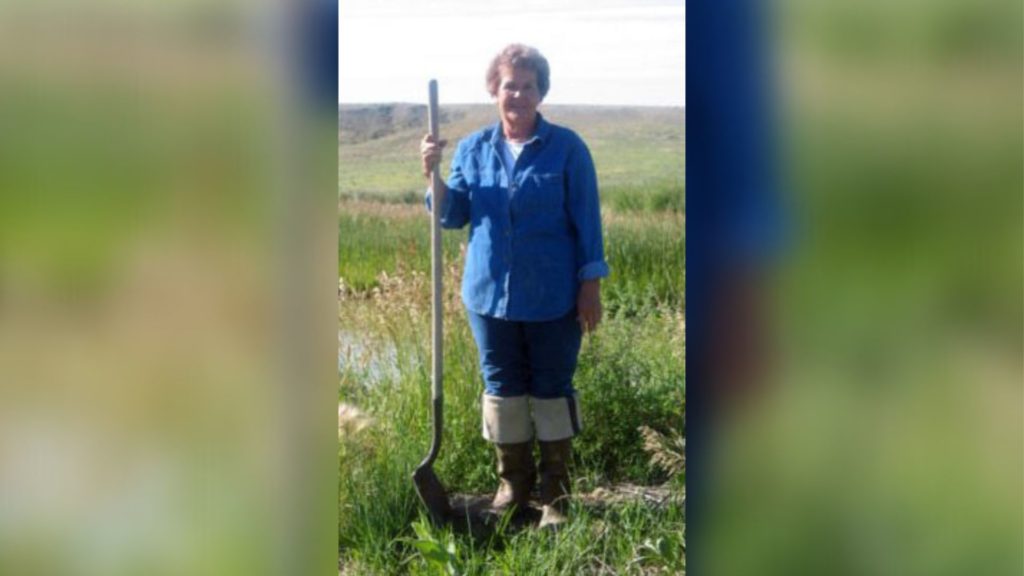
Getting Involved
Lois and her son Frank began managing the Herbst Lazy TY Cattle Co. in 1990 after Bill passed away. That’s also when Lois began looking at ranching from a perspective beyond just the family operation.
She became involved in the Wyoming Stock Growers Association, was appointed by Gov. Jim Geringer to the Wyoming Beef Council, was elected to the Lander District of the Wyoming State Grazing Board, served on several committees in the National Cattlemen’s Association and was a member of the Wyoming Wool Growers and Wyoming Cattlemen’s Associations.
At a national meeting for stockgrowers in Denver in the mid-1990s, Herbst was asked to give a presentation to the group on the value of ranching to communities.
Her speech so impressed Lyman rancher John Eyre, who was on the board of the Wyoming Stock Growers Assocation at that time, that he asked her to head up the association’s land committee.
From that point, Herbst made it a point to become educated on federal and state policies governing land use, and she took every opportunity to engage with state and national officials to advocate for ranchers’ rights.
Herbst said that she only became involved in the fight for ranchers’ rights because she wanted to protect her own property and operation, and said that had her husband not died, she would never have gotten involved.
“If my husband had been living, I would not have been allowed to go (to the meetings),” said Herbst. “He would have kept me at home.”
The Bruce Babbitt Era
Herbst recalled a particular meeting in Bozeman, Montana – when she was first “getting educated” on policies and regulations that affected ranchers – in which then-Secretary of the Interior Bruce Babbitt was in attendance.
“Bruce was going to change our grazing regulations on federal lands, limit our use of the federal lands, the uses we were given under the Taylor Grazing Act in 1934,” said Herbst, who took a video camera into the meeting.
“I recorded all the speakers for and against what Bruce Babbitt was wanting,” she said. “And Bruce Babbitt was sitting there flirting with the women in the front row, more than paying any attention to what the speakers had to say.”
Breaking New Ground
In 2004, Herbst decided to apply to be president of the Wyoming Stock Growers Association.
“(There was) a notice in our publication that if we were interested in an office to apply, so I applied for president,” she said. “And Rob Hendry and Stan Flitner, past presidents, were in charge of the nominating committee, and they approved my nomination.”
With her election, Herbst became the first – and so far only – female president of the Wyoming Stock Growers Association, an organization that has connected and advocated for ranchers since its establishment in 1872.
“They’ve had several women serving as board members elected to different regions to serve, but nobody else has become president,” said Herbst. “But maybe they didn’t apply.”
Magagna said that the significance of Herbst’s election to the presidency was more than just breaking a men-only tradition.
“What is really more meaningful to me is the fact that she wasn’t just the first female in that position,” said Magagna. “She was one of our very strong leaders who really pushed and helped move the organization forward.”
Ranching Advocate
Herbst said that as a member of the board, and as president, she and her colleagues did their best to keep up on all the regulations that affect ranchers.
And in her opinion, there are too many of those regulations that limit the ability of ranchers to use the millions of acres of public land in the state of Wyoming.
“There’s a lot of people that want to end ranching, they don’t want us to use federal lands,” said Herbst. “For instance, in Fremont County, there’s only 13% of the land that’s private land.
“Here in the state of Wyoming, it’s less than half that we own, the government owns the rest. We need those lands for grazing cattle and other uses, and there are groups who would prefer to see that wild animals use the lands and cattle not be grazed.”
Downsizing
In 2000, just 10 years after her husband passed away, their son Frank died as well, and Herbst had to start making hard decisions.
“In 2008 I sold the cattle,” she said. “At the time I was irrigating 300 and some acres.”
Herbst will turn 90 in July, and while she is still keeping a watchful eye on policies that affect her ranching operation, the thousands of acres that she, her husband and son once managed has been leased out to others.
And soon it will be time to hand over the entire ranch to a new generation.
“My grandchildren want to move here,” said Herbst. “My grandson will be moving with his wife and five children. They have a home that I built for my son here, and my granddaughter will move in my home when I’m gone.
“And if they want to raise a few cattle, they can arrange that with the guy who’s leasing (the land).”
Herbst has been labeled by those in the industry as “ranching royalty,” a moniker Magagna wholeheartedly supports.
“Not only for her role in the Wyoming Stock Growers, but for the way she took over and managed her ranch after the loss of her husband,” said Magagna.
Among the many stereotypes Lois Herbst helped break is that women are equally tough, determined and dedicated, he said.
“And it was with all the hard work and the determination and the commitment that we would expect from any rancher, whether it was female or a guy out there,” Magagna said. “I think her commitment and her dedication would equal that of just about any other rancher.”

